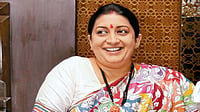At the heart of the CBI maelstrom is a tale of bloated egos, hurt pride and personal rivalries. The No. 2 and No. 4 of the agency had axes to grind against each other. No. 1 also fell out with No. 2 over time, splitting the organisation. No. 1 and No. 4 then came together against No. 2.
No. 2 Rakesh Asthana and No. 4 A.K. Sharma are Gujarat-cadre IPS officers. But the grapevine has it that they did not like each other. They carried their hostility to Delhi when they found themselves as colleagues in the CBI. Sharma came to the CBI in April 2015.
In December 2016, Asthana took over as the acting director of the agency. He was interim chief for about two months, but he rapped Sharma within that short stint by rejecting his bid to become joint director (policy)—a crucial position in the CBI as it also oversees internal vigilance.
In January 2017, Alok Kumar Verma took over as the CBI director and Asthana was relegated to No. 2. Verma, it is understood, wanted to induct four new joint directors of his choice, but Asthana apparently got it stalled. A miffed chief then hit back by making No. 4 Sharma the joint director (policy). Relations between Verma and Asthana soured rapidly thereafter.
The battlelines hardened when Asthana was appointed the CBI special director on October 22, 2017, cementing his position as No. 2. Verma objected, citing Asthana’s alleged role in a corruption case, but was overruled. They stopped communicating and never had any one-to-one meeting since this July. Factionalism in the CBI now burst out in the open, with No. 1 and No. 4 at loggerheads with No. 2. Others—such as a joint director of ED—fanned the fire. The ED official supported the CBI No. 1 and No. 4 because one of his close relatives was apparently among the four senior personnel whom Verma had tried to bring in, but Asthana had rejected.
The escalating tension hit the roof this October 15 with the CBI registering an FIR of bribery against Asthana. Verma entrusted No. 4 Sharma to investigate the case. Exactly four days later, Asthana wrote to the CVC, alleging it was Verma who took the bribe.


























